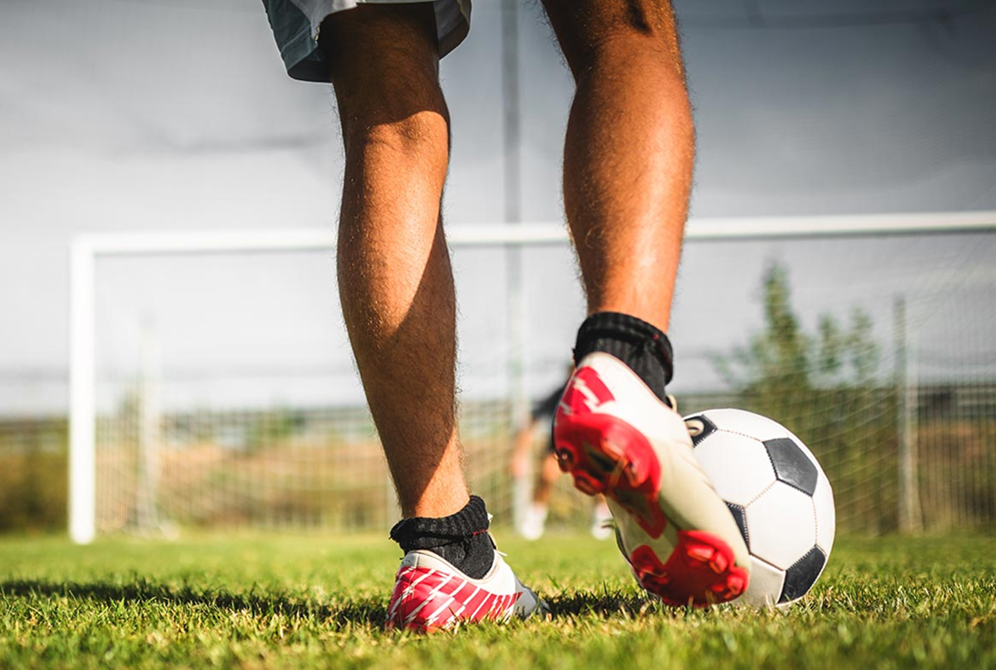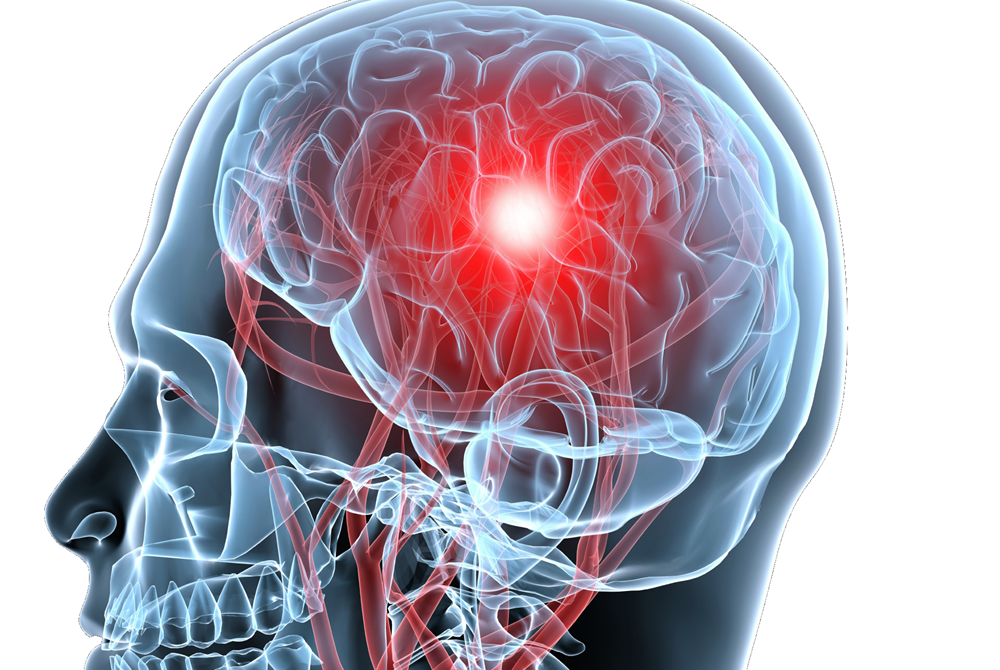
How Acupuncture Can Help Soothe Pregame Anxiety
May 7, 2024
The topic of mental health in sports has been mostly ignored until fairly recently. But thanks to several high-profile athletes’ willingness to open up about their struggles, the topic is no longer quite so taboo.
 “Athletes at all levels are realizing the importance of their overall mental health, mental preparation before an event and mental recovery afterward,” says Thomas R. Betts, DAOM, LAc, a sports medicine acupuncturist at Henry Ford Health. “Having your mind in the right place pays big dividends in terms of sports performance.”
“Athletes at all levels are realizing the importance of their overall mental health, mental preparation before an event and mental recovery afterward,” says Thomas R. Betts, DAOM, LAc, a sports medicine acupuncturist at Henry Ford Health. “Having your mind in the right place pays big dividends in terms of sports performance.”
One of the many tools athletes are using to get their minds healthy is acupuncture. It may be an ancient Chinese practice, but it can be useful to help improve the mental health of modern athletes.
What Is Acupuncture?
Acupuncture is a healing technique that has been used in traditional Chinese medicine for thousands of years. Acupuncture practitioners (acupuncturists) insert very fine, thin needles into the skin at various points on the body, depending on what condition they’re treating.
According to traditional Chinese medicine, the insertion points for the needles correspond to specific internal organs or energy channels in the body. “The philosophy behind traditional Chinese medicine is that acupuncture works by manipulating the flow of blood and energy to create balance and harmony in the body,” says Betts.
From a Western medicine perspective, acupuncture works by stimulating the central nervous system and by having some direct effect on the tissues in which needles are placed. Acupuncture also has a balancing effect on hormones within the body. It works well with other treatments for anxiety such as sports psychology, massage therapy, guided visualization and meditation.
How Can Acupuncture Improve Sports Performance?
Acupuncture has long been used to help people relax, reduce stress and cope with anxiety. And it can have that effect even when the acupuncturist is treating a physical problem. “Even when I’m treating an athlete for a sports injury, when I ask how they feel post treatment the overwhelming response I hear is ‘I feel so relaxed,’” says Betts.
This is why acupuncture seems like a natural fit for helping athletes of all levels cope with performance anxiety, pregame jitters or other competition-related fears. “Reducing stress helps athletes perform better,” says Betts. “And more and more athletes are realizing that taking care of their mental health and using tools to stay mentally focused can really enhance their performance.”
When Should Athletes Try Acupuncture?
Since an acupuncture session can leave you feeling super calm and relaxed, you don’t want to try it for the first time right before a game or competition. “The timing is important,” says Betts. “You want the athlete to feel motivated to compete, not totally Zenned out.”
The best approach is to schedule a series of acupuncture sessions in the weeks leading up to a big game, competition or race. Betts says he typically recommends athletes come in twice a week for three weeks to get started. “It’s not about treating their anxiety in the moments before a game,” he says. “It’s about establishing a baseline of calm that they can carry with them into the competition.”
While there’s still some stigma surrounding athletes and mental health, Betts sees the popularity of acupuncture as one sign of a shift. “I think we’re trending in the right direction for mental health,” he says. “Athletes are starting to understand that if they want longevity and success in their sport, they need to take care of their mental and emotional health—not just the physical.”
Reviewed by Thomas Betts, DOAM, RAc, a certified sports acupuncturist who sees patients at the Henry Ford Center for Athletic Medicine in Detroit.
To find a sports medicine provider at Henry Ford Health, visit henryford.com/athletes or call 313-651-1969.

How To Be Proactive About Concussions In Student Athletes
December 5, 2023
Most people have seen the headlines about concussions as a common sports injury—and it's natural that parents of athletes may have concerns. A large misconception in sports is that previous concussions are to be blamed for ongoing headaches, blurred vision and memory loss, among other symptoms.
 “It’s really important to think about concussions in tandem with overall brain health,” says Jake Carpenter-Thompson, M.D., Ph.D., a board-certified neurologist at the Henry Ford Kutcher Clinic for Concussion and Sports Neurology. “Concussions can be concerning, but they shouldn’t be looked at in a vacuum. It is important to understand an athlete’s overall brain health to help manage recovery after any impact.”
“It’s really important to think about concussions in tandem with overall brain health,” says Jake Carpenter-Thompson, M.D., Ph.D., a board-certified neurologist at the Henry Ford Kutcher Clinic for Concussion and Sports Neurology. “Concussions can be concerning, but they shouldn’t be looked at in a vacuum. It is important to understand an athlete’s overall brain health to help manage recovery after any impact.”
One way to do that is to consult with your child’s doctor or a sports neurologist for an annual evaluation. A sports neurologist focuses on managing sports-related brain and nervous system injuries and conditions in athletes, such as concussions, post-concussion syndrome, peripheral nerve injuries, migraines, epilepsy and more.
“Having an annual evaluation of your athlete’s brain health when they are at their baseline – and uninjured – can help diagnose and treat issues when they arise,” says Dr. Carpenter-Thompson.
A qualified healthcare professional can use the baseline evaluation results as an important comparison tool if an athlete develops a suspected concussion.
Best Practices For Keeping Athletes Safe
Dr. Carpenter-Thompson shares these tips to ensure you keep front of mind your child’s brain health and safety, not just their athletic performance:
- Get a brain health baseline test. This should include a personal and family neurological history, with a focus on current issues. It is important to note any neurological conditions that may influence concussion recovery, such as ADHD, depression, anxiety or migraine headaches.
- Encourage your children to listen to their body. There are risks to playing any sport. Encourage your child to listen to and be honest about how they’re feeling. It’s the best way to prevent and treat injuries.
- In the event of an injury, look for the signs. Within 24 hours after an injury, an athlete should be evaluated if they are experiencing: headaches, fatigue, dizziness and nausea, changes in sleep habits, trouble with memory, confusion, irritability and anxiety, or light sensitivity.
- Know that brain injuries don’t just occur with a blow to the head. They can also occur from falls, car accidents or even whiplash. If your child is experiencing any symptoms, consult your physician.
- Remember that brain health is more than just concussions. If your athlete is complaining of chronic headaches, migraines, dizziness, memory or mood issues, there may be an underlying issue.
“There is no magic number of concussions a brain can sustain. Each person is different,” says Dr. Carpenter-Thompson. “The severity of the impact and recovery time can vary greatly for numerous reasons. By getting a brain health assessment before the injury, we can provide more targeted care to improve an athlete's overall clinical course.”
To find a sports medicine doctor or athletic trainer at Henry Ford, visit henryford.com/athletes.

